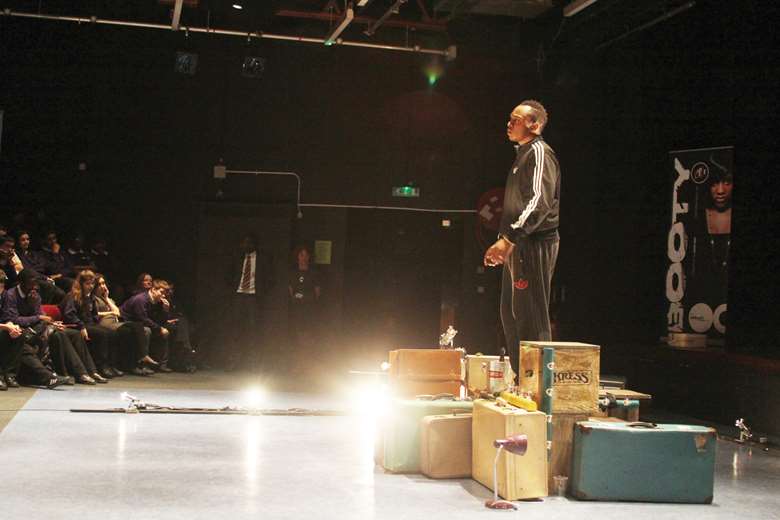Good Practice: How real-life dramas succeed in improving pupils' behaviour
Emily Rogers
Monday, September 29, 2014
Project improves attitudes among young people and reduces the likelihood of them getting involved in crime.

Project:
OC Impact
Funding
£850 per performance or £1,050 including a follow-up workshop. The cost is met from various sources and usually involves a contribution from the school
Background
Crime prevention charity Only Connect engages young offenders in custody through creative arts. Its co-founding director Emma Kruger knew the power of drama to engage young people, through her experience of teaching the subject in mainstream schools and to pupils who had been excluded. She had also worked with ex-offenders, who she says "had a natural desire to go back to young people and talk to them about the mistakes they had made". Bringing ex-offenders and performances into schools to change young people's attitudes and behaviour was a natural progression for the charity, which launched its OC Impact scheme in 2008.
Action
Six to eight under-25s are recruited each summer and spend six weeks rehearsing for a specially-written performance, which tours schools and colleges throughout the following academic year.
At least half are young people involved in the criminal justice system or not in education, employment or training, who the charity already works with in other youth programmes. But all of them have experience of the issues covered in the productions, such as drugs or crime. Another thing the recruits have in common is an "innate charisma", enabling them to talk powerfully and arrestingly about their experiences, explains Only Connect's strategy director Mat Ilic.
The productions are led by a creative director and storylines often come from real-life experiences of the young people the charity works with. They run in secondary schools, colleges and alternative provision such as pupil referral units in every London borough throughout the school year, reaching between 12,000 and 15,000 young people in about 100 schools annually.
The 45-minute production is interactive. At several points where crucial decisions have to be made, the characters freeze and the facilitator asks the audience to discuss which way the characters should go. The productions are generally followed by one or more workshops, led by the facilitator and one of the performers, to explore some of the issues arising from the performance.
"The idea is that we cast people who have had some experience of these things and can talk in ways that young people can relate to, rather than having a well-meaning professional who can't relate to them," says Ilic. "One of the expectations is that they're able to talk about it and give a testimony. Even if it's slightly embellished, it still has to come from the heart."
Ilic says young people in the audience often approach the facilitator and performers afterwards and disclose similar things, such as violent incidents, that have happened to them, their peers or siblings. These disclosures always have to be passed on to a school or college's support staff for safeguarding reasons. But he says the performances can also be a catalyst for young people opening up to school staff directly. "Young people take it as an opportunity to discuss things, because it's presented in a way that not only makes it clear this stuff is not okay, but also that it is okay to talk about it," he says.
The charity is developing training for school staff to help them to identify young people at risk and get better at supporting them earlier.
Outcome
An evaluation by a research student at the London School of Economics, using before and after questionnaires, found the scheme had helped shift young people's attitudes.
Of 308 young people from five London schools who saw the OC Impact presentation between September 2012 and June 2013, 75 per cent showed a move towards more "pro-social" attitudes. Of those, 32 per cent showed a big improvement in attitude, while 68 per cent experienced a smaller shift.
Schools have commented on how the project has helped turn around their pupils' behaviour. "Students at risk of exclusion and on last warnings are back on track as a result of OC's work at our school," wrote one west London secondary.
YOUNG PEOPLE'S ATTITUDES TO CRIME
Results from 308 pupils who saw the OC Impact performance
75% - Positive change in attitude to crime and antisocial behaviour
32% - Big change in attitude
68% - Slight change in attitude
If you think your project is worthy of inclusion, email supporting data to derren.hayes@markallengroup.com




